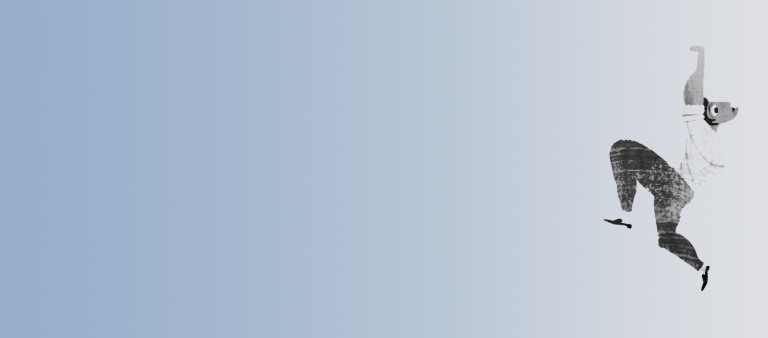How much do you depend on trust?
![{[downloads[language].preview]}](https://www.rolandberger.com/publications/publication_image/roland_berger_think_act_magazine_trust_cover_en_download_preview.jpg)
The central theme in our Think:Act magazine is trust.


by Janet Anderson
How creative blockchain pioneers are adapting the new technology to work way beyond the world of finance.
Just imagine that your electric car needs charging. Today, armed with your smartphone, you can find the nearest charging station. But suppose your car simply charged itself from inductive charge poles under the road, as it stands at a traffic light, the cost automatically debited from your account at the end of the day, without you having to think about it? By making charging easier and removing the anxiety of running out, it would help boost the uptake of sustainable transport.
A key technology behind this vision is blockchain, a form of data storage that records blocks of data in chains across a decentralized database. Since its first appearance in 2008 as the technology behind the digital cryptocurrency, the Bitcoin, other blockchain platforms have emerged. According to a report by IBM, 15% of global banks are ready to roll out commercial blockchain products in 2017. Beyond the world of fintech, governments are investigating potential applications such as reducing tax fraud and running elections. What makes blockchain so revolutionary is its potential to remove the middleman. Described as the technology that adds a layer of trust to the internet, it makes possible secure online transactions through a distributed database that records events in time-stamped blocks. With each block in the decentralized digital ledger linked to a previous block, blockchain creates an immutable record of events – once recorded, the data cannot be altered retrospectively. Value can be exchanged more quickly, safely and cheaply.
"Distributed ledger technologies have the potential to disrupt large sectors of our socio-economic systems," says Paolo Tasca, executive director of the Centre for Blockchain Technologies at University College London in the UK. In addition to the financial sector, Tasca believes all kinds of industries could be transformed, from healthcare, pharma and energy to logistics, media and telecommunication.
In particular, he believes industries where copyright infringement is a problem could benefit from this new technology. "As a registry of ownership, it could raise transparency and solve the copyright problem," says Tasca.
No wonder, then, that pioneers in the creative industries, where copyright infringement causes economic damage amounting to $100 billion a year, are exploring the possibilities offered by blockchain.
Grammy Award-winning musician Imogen Heap was so grabbed by the potential of blockchain technology to tackle the complex issue of music copyright in the online world, that she founded an organization, Mycelia, to bring people together to work on these ideas.
With blockchain technology, Heap sees the foundation of a sustainable ecosystem for music – one in which payments are sent directly and automatically to the artist. She has already experimented with its potential by releasing a song, "Tiny Human", with blockchain. When the song is bought, a smart contract sends the payment almost instantly to the digital wallets of all the creators. Better still, fans can not only see all the credits and lyrics, they can also purchase the stems (the audio files that split a track into its consitutent parts) separately or together, decide what kind of license to buy and see in detail how each artist that contributed to the work will be recompensed.
"We track diamonds from mine to market, providing peace of mind for buyers and saving insurers a lot of money."
In the luxury goods sector, provenance is of the essence. Fraud costs the insurance industry millions of dollars every year. To tackle this issue for the diamond trade, London-based company Everledger has built a verification system on the blockchain which will serve insurance companies, banks, mining companies, certification houses and retailers. The technology enables them to record diamonds within hours of them leaving the mine and track their flow through the supply chain. Fraudulent claims are quickly detected by cross-referencing data sources.
Leanne Kemp, Everledger’s founder, came to this idea after 25 years of experience with emerging technologies in supply chain, jewelry and the insurance sector. "Diamonds gain a recorded identity through the certification process, where arguably their value is attributed. Traditionally, provenance is recorded in a documentation process which has been proven to show vulnerability and is open to tampering. Fraudulent practices are therefore widespread," she explains. "We track diamonds from mine to market, capture the DNA of each one and inscribe it into the blockchain, providing peace of mind for buyers and saving insurers a lot of money."
Everledger has over 1,000,000 certified diamonds on its distributed database, with thousands more added daily. Key to its success is the ability of different stakeholders from across the industry to work together. The diamond industry was ready for such collaboration, says Kemp, having worked together since 2000 under the United Nations Kimberley Process, established to prevent the illegal trade in diamonds. Everledger binds the industry closer to tackle these problems. "It’s a data relay race as diamonds pass from hand to hand," says Kemp.
Kemp believes that with consumers wanting to know more about the source of products, there is potential to apply the technology more widely across the retail industry.
Provenance, also based in London, aims to do just that. Their blockchain-based platform allows businesses to share information about the origins of their products and track the journey across the supply chain. Their goal is to build an open registry for products to inform purchasing decisions at any stage of a material’s life.
Provenance has already shown how sustainably caught tuna fish can be tracked from the initial catch to transport, market, export and eventually a supermarket shelf. It has begun working with a UK supermarket chain to see how the idea can be applied more widely.
Perhaps the ultimate test for the blockchain is its connection to the sharing economy and the physical world, explains Stephan Tual, co-founder of Slock.it. For example, if you can send money to a lock to unlock it, you can rent the locked property directly to others. Slock.it has worked on that very idea and also applied it to the area of mobility developing a blockchain-backed system that enables users to access the best mobility option available, public transport or car sharing, without having to register or buy tickets.
Next, the team looked at sharing other assets, like utilities. With Share&Charge, owners of charging stations can sell electricity to electric car owners directly, enabling the charging station owners to recoup the cost of installation and providing electric car owners the convenience of more charging stations.
Founded by Leanne Kemp, Everledger is using blockchain to document and track diamonds, offering both peace of mind to buyers and huge savings to insurers. She intends to expand the company’s service to include other luxury goods, from fine art to jewelry and wine.
Now they are working on the idea described at the beginning of this article – a car that charges itself while standing at the lights. "Without blockchain this would not be possible," says Tual. "A credit card payment takes several seconds to be approved. You can’t wait that long at the lights – the transaction has to be instant."
Tasca explains the benefits. "Uber, Airbnb and other intermediary platforms create value exclusively for their shareholders. I believe that distributed ledger technology can open the way to an authentic sharing economy where end users are the only beneficiaries of the market value generated by the platforms," he says.
He predicts a bright future for blockchain: "It will bring us to the point where all social, business and political connection will be disintermediated on a vast scale," he predicts. Looking ahead 20 years or more, Tasca already wonders what a blockchain-based society would look like: "If institutions become self-sustainable – run by algorithms where everything is recorded, tamper-proof, self-enforceable and, although anonymous, open and accessible to all – will this change their traditional role as structures and mechanisms of markets and social order?"

![{[downloads[language].preview]}](https://www.rolandberger.com/publications/publication_image/roland_berger_think_act_magazine_trust_cover_en_download_preview.jpg)
The central theme in our Think:Act magazine is trust.
Curious about the contents of our newest Think:Act magazine? Receive your very own copy by signing up now! Subscribe here to receive our Think:Act magazine and the latest news from Roland Berger.

